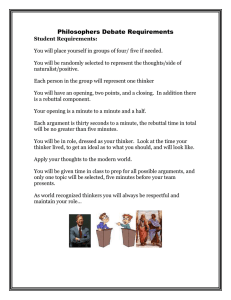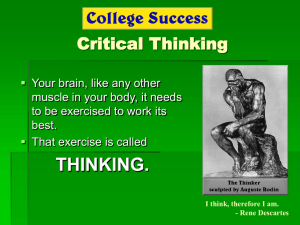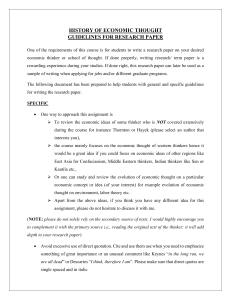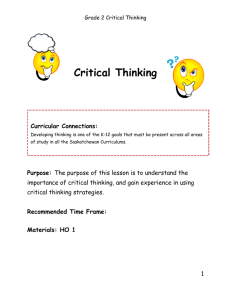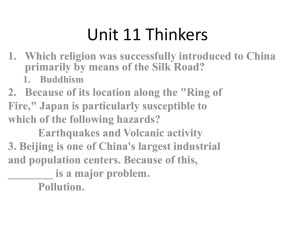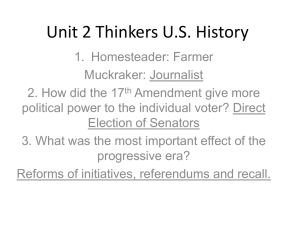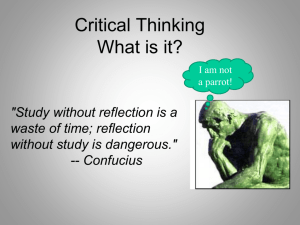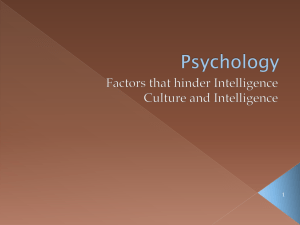Thinking: An Introduction
advertisement
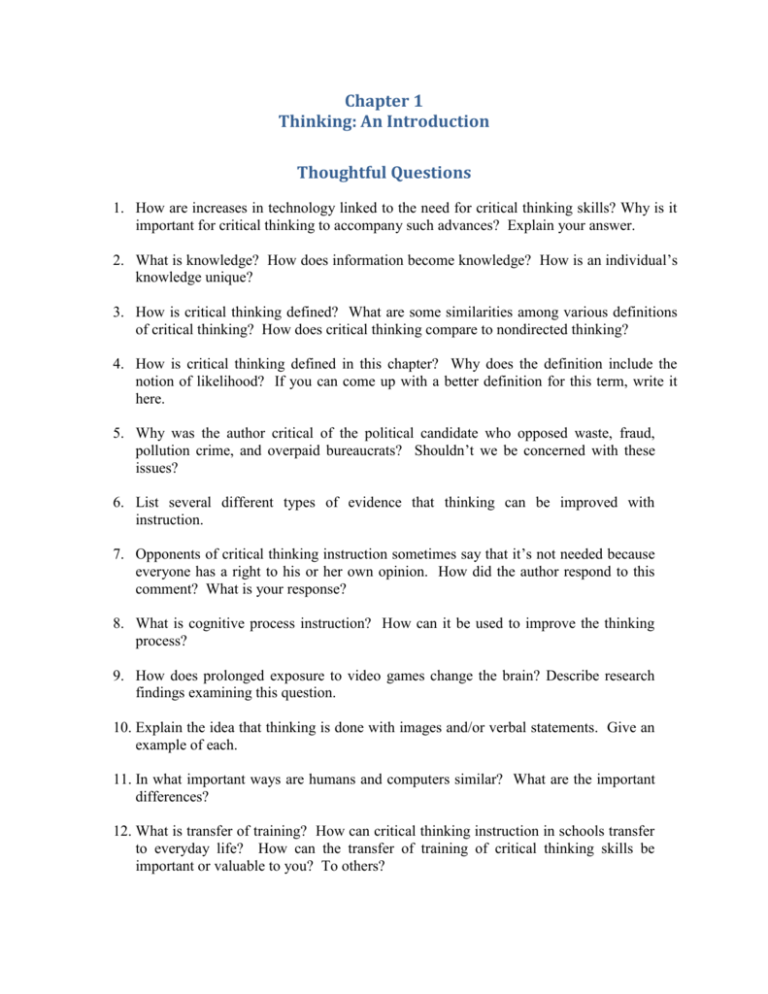
Chapter 1 Thinking: An Introduction Thoughtful Questions 1. How are increases in technology linked to the need for critical thinking skills? Why is it important for critical thinking to accompany such advances? Explain your answer. 2. What is knowledge? How does information become knowledge? How is an individual’s knowledge unique? 3. How is critical thinking defined? What are some similarities among various definitions of critical thinking? How does critical thinking compare to nondirected thinking? 4. How is critical thinking defined in this chapter? Why does the definition include the notion of likelihood? If you can come up with a better definition for this term, write it here. 5. Why was the author critical of the political candidate who opposed waste, fraud, pollution crime, and overpaid bureaucrats? Shouldn’t we be concerned with these issues? 6. List several different types of evidence that thinking can be improved with instruction. 7. Opponents of critical thinking instruction sometimes say that it’s not needed because everyone has a right to his or her own opinion. How did the author respond to this comment? What is your response? 8. What is cognitive process instruction? How can it be used to improve the thinking process? 9. How does prolonged exposure to video games change the brain? Describe research findings examining this question. 10. Explain the idea that thinking is done with images and/or verbal statements. Give an example of each. 11. In what important ways are humans and computers similar? What are the important differences? 12. What is transfer of training? How can critical thinking instruction in schools transfer to everyday life? How can the transfer of training of critical thinking skills be important or valuable to you? To others? 13. The answer to the question of whether intelligence can be improved with instruction depends on how intelligence is defined. What are the components of intelligence, and can they be improved with appropriate learning experiences? 14. What are some differences in the way good and poor thinkers solve reasoning problems? What are the attitudinal characteristics of good thinkers? 15. Explain the notion that critical thinkers are “mindful.” What is it that they are mindful of? 16. What is metacognition and why is it important to being a good rather than a poor thinker? 17. Describe thinking as a biological process. How does direct experience affect it? 18. What is the Ultimatum Game? How does it reveal the influence of emotions on our thinking? 19. Describe the Hollywood view of the critical thinker. How can the pervasiveness of this stereotype affect peoples’ views of critical thinking and critical thinking instruction? How could this stereotype be challenged? 20. Explain the differences between System 1 and System 2. Explain how you would use both systems in the same scenario (e.g., when on a first date or buying a jar of peanut butter). 21. Your book gave several arguments to convince you of the need for critical thinking. Give two examples.
